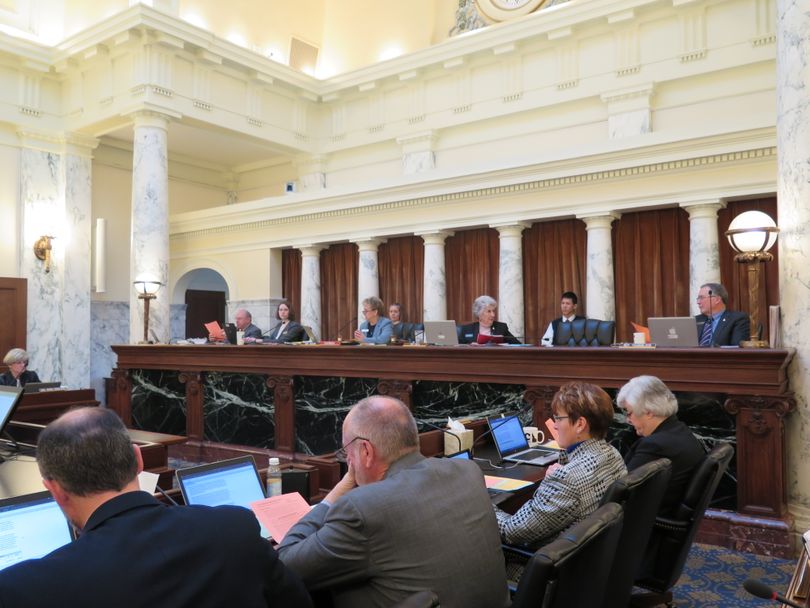JFAC approves funding reductions for Veyo contract, CAT fund balance; boost for CBD oil trial

The Joint Finance-Appropriations Committee approved a long list of supplemental appropriations this morning, additional spending proposals or spending reductions within the current budget year, all by unanimous, 20-0 votes. Among those approved: A $5 million reduction in general funds to the Catastrophic Fund, because of fewer cases than expected in fiscal year 2016; a nearly $400,000 reduction in general funds for non-emergency transportation under Medicaid, due to the state’s new, lower-cost contract with Veyo; and an additional $128,600 to the Department of Health & Welfare’s Physical Health Services division for an expanded access program that’s providing a limited number of Idaho children with intractable epilepsy with the experimental drug Epidiolex, which contains CBD oil, or cannabidiol, a derivative of marijuana.
The CAT fund reduction drew little discussion; the state’s fund that picks up costs for indigent catastrophic medical care when they rise above $11,000 – counties pay the first $11,000 out of local property taxes – has seen lower costs as more Idahoans have signed up for subsidized health insurance through the state’s insurance exchange, Your Health Idaho. “As I understand it, this was money that was not used for 2016 expenditures,” said Sen. Shawn Keough, R-Sandpoint, JFAC co-chair. “They didn’t use the money; it’s just sitting there, so we’re taking it back. But we could very possibly give it back in the fiscal year 2018 appropriation.”
The CAT Fund has requested a budget for next year matching this year’s level, amid uncertainty over whether the state exchange coverage might change due to national changes in health insurance laws.
The Veyo contract change reflects the state’s savings under the new contract, but JFAC attached “legislative intent” language to the appropriation to require $200,000 of the money appropriated for non-emergency medical transportation to be used for a third-party audit and development of training for drivers, in collaboration with stakeholder groups.
Rep. Melissa Wintrow, D-Boise, noted widespread complaints about the new contractor’s service, which includes, for the first time, independent drivers who are contracted to transport patients on an Uber-style model, in addition to established medical transport providers. “The Department of Health & Welfare has been meeting with stakeholder groups to identify those problems and address possible solutions,” Wintrow said, and in those meetings, the suggestions for a third-party audit and training for drivers arose.
Sen. Fred Martin, R-Boise, said, “I appreciate the effort, the reduction. I too have concerns about the program. I think the stakeholders are meeting and I’m hopeful that they’ll be able to realize the savings but also make this program whole.”
The additional funding for the Epidiolex trial will allow another 15 children to be added to the program; it’s currently serving 24. It’s a “compassionate use” program being conducted in concert with a national trial of the drug; as a result, all of the Idaho kids are getting the actual drug, not a placebo. JFAC members asked if the move would serve all the children on the waiting list for the program; the answer was yes. Epidiolex, which the manufacturer is providing to the program for free, is not yet commercially available, but is expected to win FDA approval within one to two years.
Gov. Butch Otter issued an executive order authorizing the limited program after vetoing legislation in 2015 that would have allowed Idaho parents of children with intractable epilepsy to treat their children legally with CBD oil. Only children whose treatment has been unsuccessful with multiple other drugs, and who meet other requirements, are eligible for the compassionate-use program.
